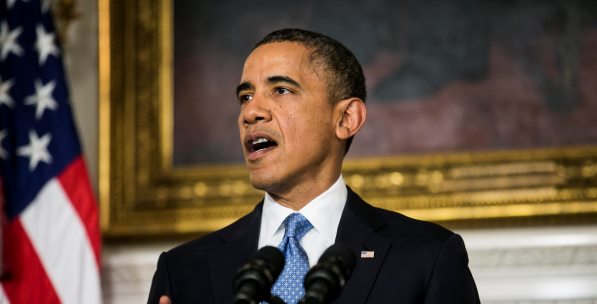It is probably one of the most famous scenes in the last Spiderman sequel starring Tobey Maguire. When his uncle gives a ride to our hero for the last time before being killed by a thief, he reminds Peter Parker that "great power brings great responsibility."
This Spiderman rule is not just a quote from the superhero fiction, but actually very relevant in terms of the power/ responsibility nexus. In addition to sounding very familiar within the emerging norm of R2P (Responsibility to Protect), this feeling of responsibility also constitutes a significant but ignored pillar of great power legitimacy in international relations.
One can now see traces of debates on American decline in every corner of social and political life, such as in daily conversations among Americans in the writings of well-known writers and well-established scholars. It is now a trend to write about the decline of the U.S., talking about the good old days by stating, "that used to be the U.S." or "post-American world" or writing an obituary for "a short American century" or "the end of the American dream."
In popular magazines for almost 10 years now, it has become a repetitive topic to have a cover story on how the U.S. is falling apart and how China or India is rising. Politicians (both current and former) are trying to use arguments concerning the American decline and talking about renewed leadership and restoration of American power. In fact, although nowadays the debate on the American decline has become one of the most popular enterprises in American intellectual life, there is not much emphasis on the dimension of the impact of great power on responsibility in this decline.
The anecdotes of American decline sometimes seem like a broken escalator of failed high school education and healthcare in the U.S. or changes in the lifestyles of American people.
The restoration of American power and influence in the world, which has become almost a political motto, rarely mentions the global responsibilities of the U.S. in this new system and how the U.S. will fulfill these. But what generated this debate in the very beginning was not a global economic crisis or depression in the American economy. In the midst of the 1990s, when everybody was talking about a unipolar global order with an American hegemony that might continue for decades, the genocide in Rwanda, which led to the killing of approximately 900,000 people under the watch of the international community, actually started to question this hegemony and power configuration in the international system.
The "never again" discourse that reemerged after Rwanda one more time was limited as a rhetorical action. In a period that marks the 20th anniversary of the genocide in Rwanda, we are facing the same type of atrocities in different parts of the world. People in Arakhan, Syria and the Central African Republic are facing similar types of human rights atrocities. And the most depressing part of this is that the world is watching most of these conflicts with a similar degree of indifference and insensitivity. It is almost reminiscent of the famous episode from the movie "Hotel Rwanda" between Paul Rusesabagina and a Western photographer. When Paul asks about a potential intervention by the Western powers after seeing the atrocities documented by the photographer, the photographer responds, "I think that when people turn on their TVs and see this footage, they'll say, "Oh my God, that's horrible," and then they'll go back to eating their dinners."
In fact, although not frequently mentioned, it was not the Lehman Brothers bankruptcy or the Iraq War but Rwanda that launched the questioning of American power in the post-Cold War years. The inaction of great powers in the face of various atrocities will continue to be the most significant determinant of the legitimacy of emerging powers in international relations in the coming years. When reading history, people will not only see the documented killings and massacres but also the great power politics of avo








